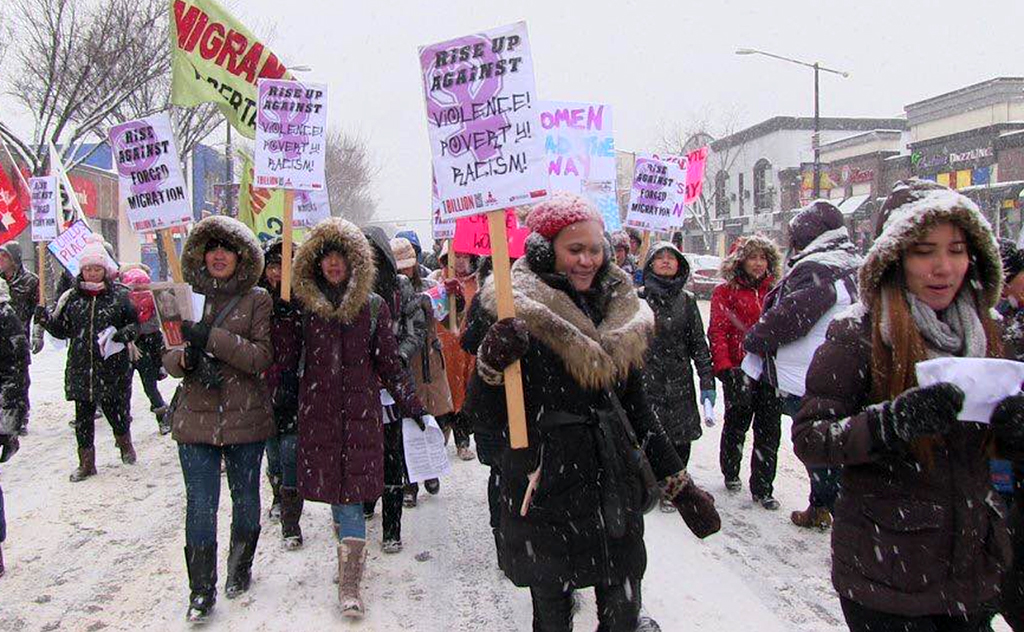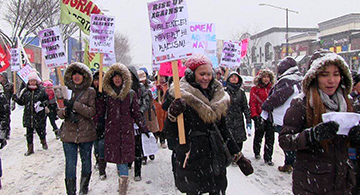
The hashtag “Me Too” (#MeToo) has beenall over the Internet since October of last year. It was a response by women,most of whom were celebrities, in the wake of the allegations of years of sexual misconduct by movie tycoon Harvey Weinstein. Actress Alyssa Milano initiated the hashtag. She suggested that women who were sexually harassed use it to show how widespread the problem is. In an article for Wired Magazine, writer Jesse Hempel said, “On its surface, #MeToo has the makings of an earnest and effective social movement. It’s galvanizing women and trans people everywhere to speak out about harassment and abuse. It’s causing everyone to weigh in on systemic sexism in our culture”. “In truth, however, #MeToo is a too-perfect meme. It harnesses social media’s mechanisms to drive users (that’s you and me) into escalating states of outrage while exhausting us to the point where we cannot meaningfully act” he added.
March 8 is International Working Women’s Day. On this day in 1908, thousands of women workers under the International Ladies Garment Workers Union left their factories on strike and marched through New York City to demand shorter work hours, just pay, and the right to vote. In Europe, women also left their work and rallied for their right to suffrage. Since then, every year, women all over the world celebrate and commemorate that day. This year, many commemorations highlight how women are fighting back, especially on social media. However, the hashtag campaign seems to fall short and is not inclusive. The campaign is driven by the media focusing on prominent and middle-class women.
In the February article by Paul Wilcox for The Liberation magazine, he said that “The capitalist media has focused on prominent women who have shown great courage in speaking out, but has virtually ignored the millions of working class women who are far more vulnerable to sex crimes, with far fewer resources and whose daily fight is for survival”. He talks about a system that perpetuates misogyny. “In class society men in power have abused women in myriad ways with no fear of consequences. Under capitalism, those with the money and power are like kings and they consider women their property”.
In that case, what about the migrant workers? In particular, the caregivers in Canada that often live with their employers. A majority of caregivers in Canada are Filipino women. With little to no protection from the Philippine government, the Canadian government takes advantage of the education, expertise, and skills of hundreds of thousands of Filipino workers to fill its labour shortages.
The Canadian government made negative changes in the Temporary Foreign Worker Program (TFWP), including the Live-in Caregiver Program. These changes have done little to protect and promote migrant workers’ rights. Migrant workers are still tied to their specific employers and the pathway to permanent residency is now more difficult to navigate. In fact, the recent announcement by Immigration Canada to stop giving pathways to permanent residency by November 2019 created panic among caregivers. The situation of migrant workers is still marked by precariousness and multiple vulnerabilities.
Filipino women migrant workers endure the long years of family separation from their children and when the time comes for family reunification, it is a big challenge and remains one of the biggest social costs of migration.
It is necessary to note that from 2015, women opting to go abroad to work increased by 41%. These women go to up to 192 countries around the world and become exposed to harsh and precarious labour, employment and immigration situations abroad. The Philippine Labor Export Policy or LEP surely sells the labour of women like a commodity to capitalist countries like Canada to become pawns in a revolving door of cheap, exploitable and disposable labour.
During his campaign, President Rodrigo Duterte promised that change would come once he was elected. However, for women, these promises have been completely forgotten. He has shown himself to be someone who has no firm word. He would say one thing but retract it as a joke later on. He is unashamed, remorseless and unapologetic about his misogynist views on women. It is revealing of whom he truly serves, and it is definitely not the Filipino people.
“The struggles of Filipino women in Canada is linked to the struggle for fundamental change in the Philippines” said Cynthia Palmaria, a founding member of Gabriela Ontario and now based in Edmonton with Migrante Alberta. “Our women, and Filipinos in general will not be forced to leave their families to work abroad if we have good jobs and good livelihood back home” she added.
While social and mainstream media focus on “culture change” and “morality”, destroying misogynist culture and abuse, migrant and immigrant women are also calling for the root causes of migration, restraining migration policies, lack of access permanency, detention and deportation policies, labour rights and access to decent work and decent wages, etc. to be addressed. Certainly, for most poor and working-class women and migrant women of color, systemic and societal structures need to be challenged to move beyond “Hollywood”.
Happy International Women’s Day!


